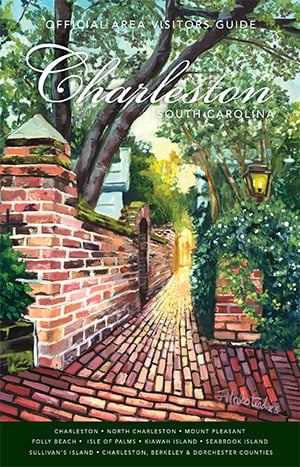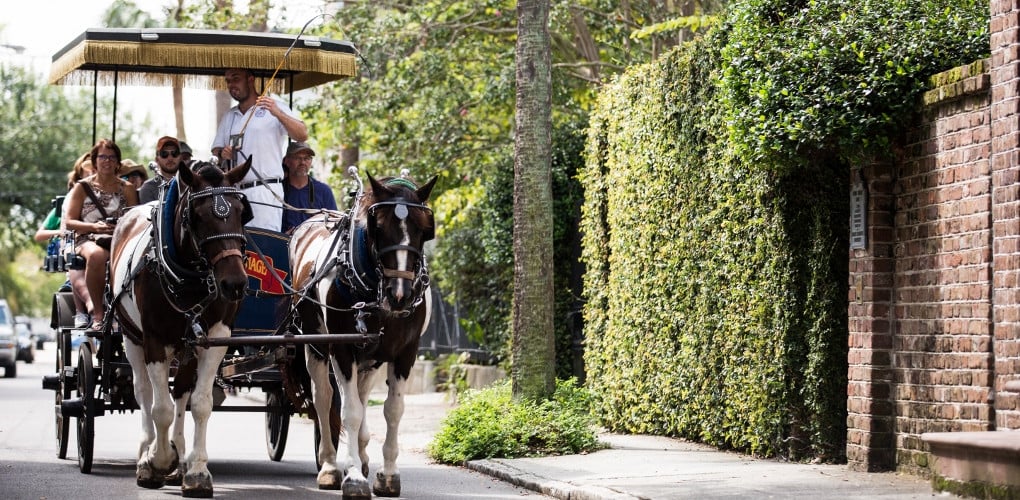
Palmetto Carriage Works
Historic horse and mule drawn carriage tours
In Charleston, everything from the cobblestones to the iron gates has a story to tell and we pride ourselves on showcasing these historic sites. Take a ferry to Fort Sumter and stand exactly where the Civil War began. Tour one of our expertly preserved plantations and mansions. There is history everywhere so be sure to take time to take it all in.
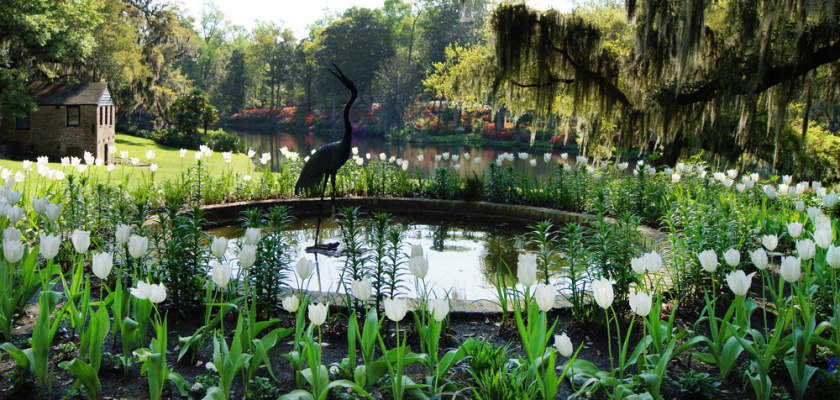
Home to America’s oldest and most important landscaped gardens, the historic site encompasses 110 acres including the Gardens, House Museum, Stableyards, and Eliza’s House.
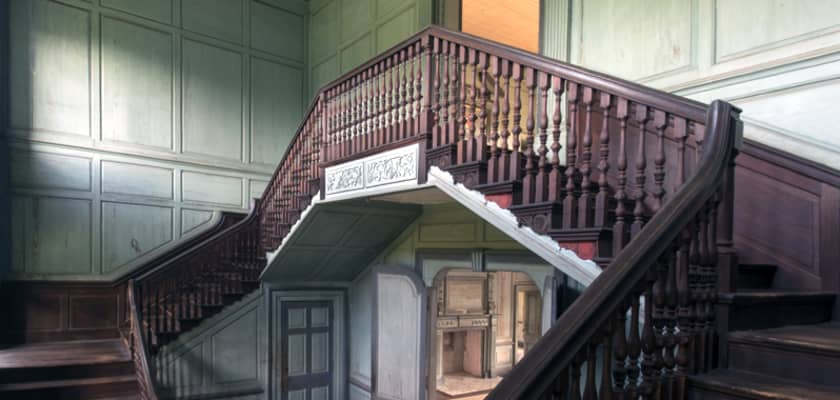
Conde Nast Traveler’s Best Place to See in South Carolina. America’s oldest unrestored plantation c. 1738 open daily for house tours, plantation tours, and museum exhibits.
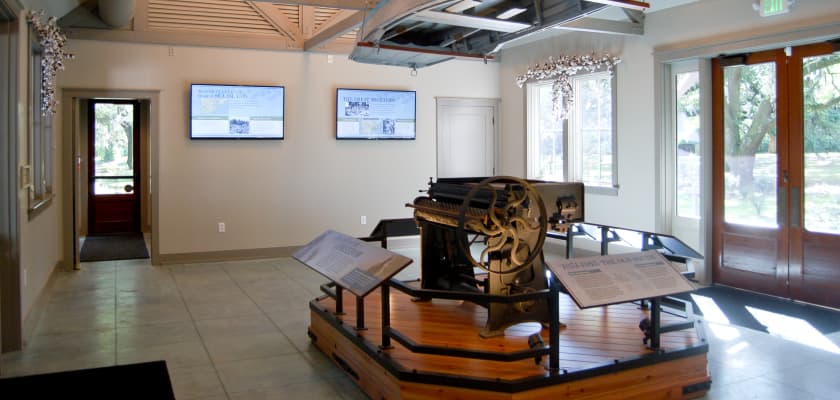
Established in 1851. An important Gullah/Geechee heritage site, preserved in recognition of generations of enslaved people and its cultural and historical significance.
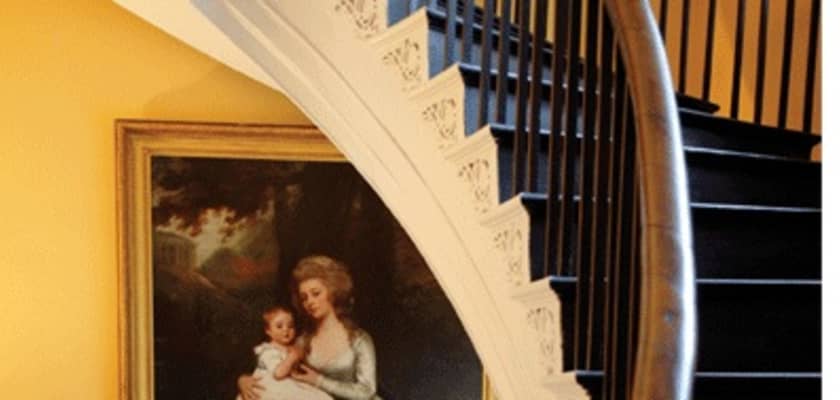
Grand Federal townhouse completed in 1808. Restored interior w/ elaborate ornamentation, period antiques & a magnificent free-flying staircase. Set amid spacious lush gardens.
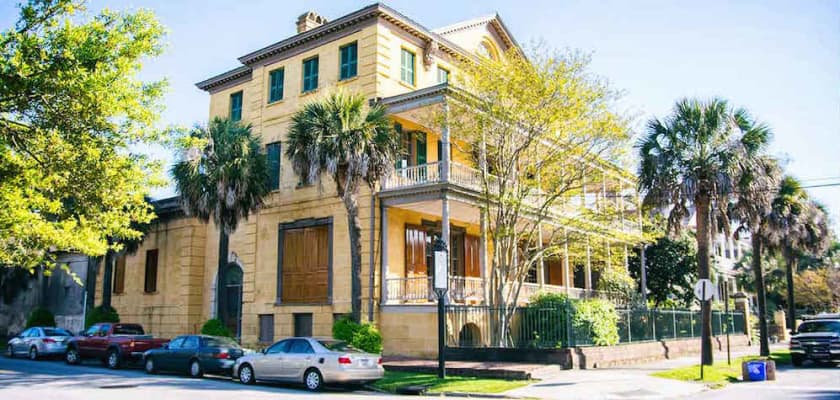
City’s most intact antebellum urban complex (c. 1820). Historic interiors, surviving virtually unaltered since 1858, have been conserved & stabilized. Many original objects.
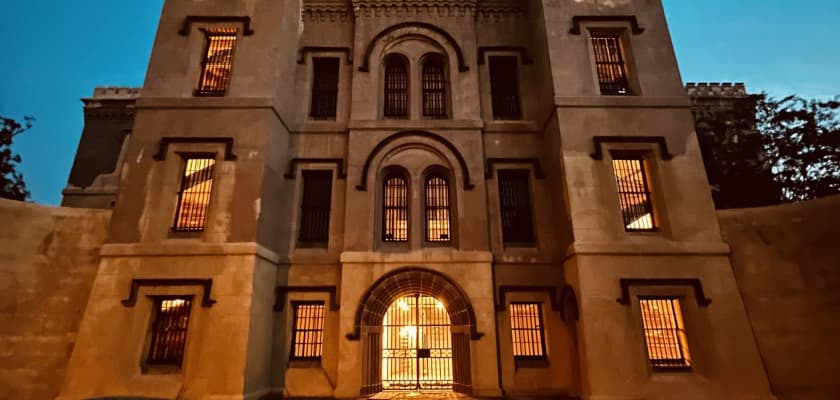
Explore the eerie history of the Old City Jail, exclusively offered by Bulldog Tours. Step inside this chilling landmark for spine-tingling tales!

This 2.5 hour experience offers a history tour combined with curated tours of two South of Broad museum houses and gardens. Only Bulldog Tours offers this unique combination.
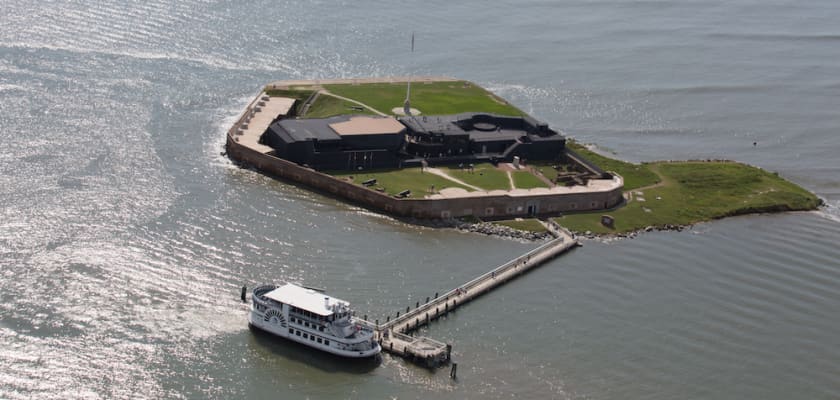
Charleston's "must do" - travel back in time by boat & visit Charleston's ONLY National Park with Fort Sumter Tours. Boats depart daily from downtown and Patriots Point.
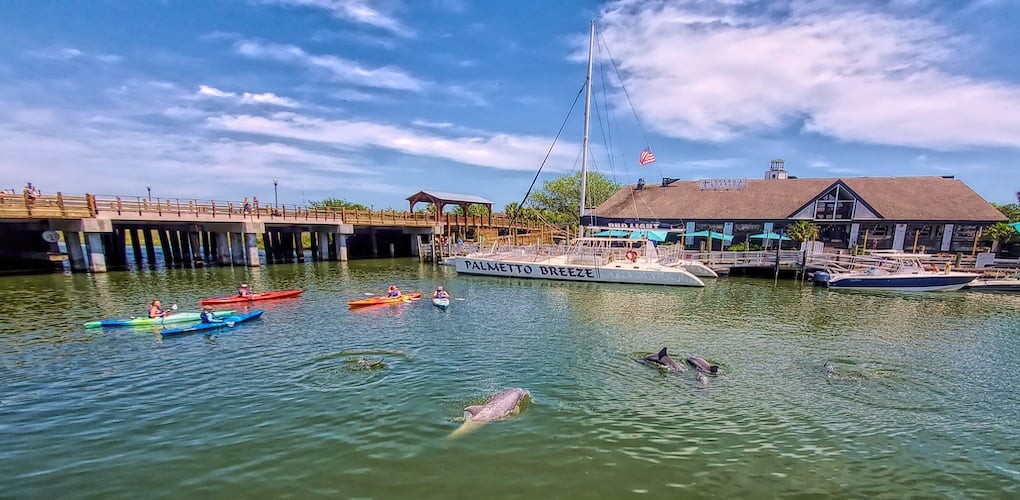
Ready for your close encounter with nature?
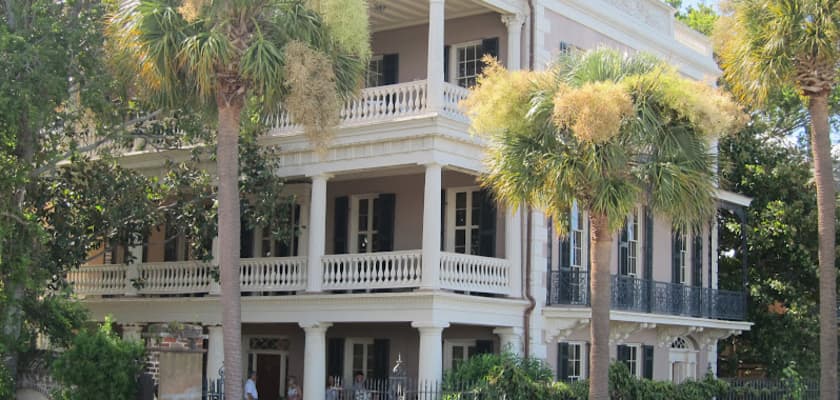
Built in 1825 on Charleston’s High Battery, the house today stewards both the history of two Charleston families, and the enslaved workers who made their lifestyle possible.
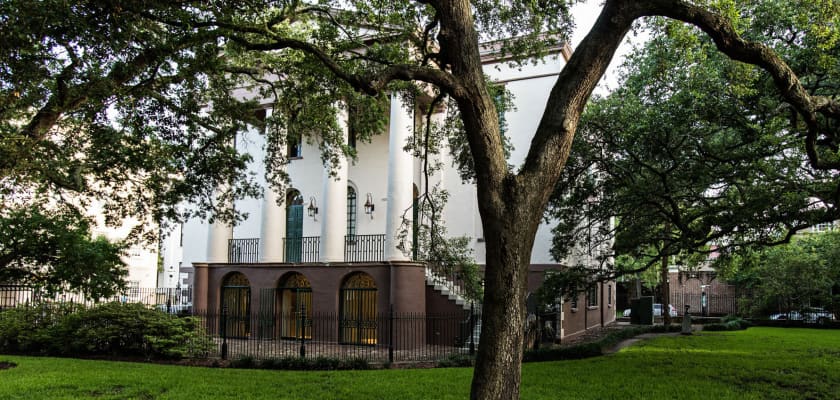
Located in the historic Fireproof Building, the SCHS Museum showcases more than 350 years of the state's history through the artifacts and records of those who experienced it.
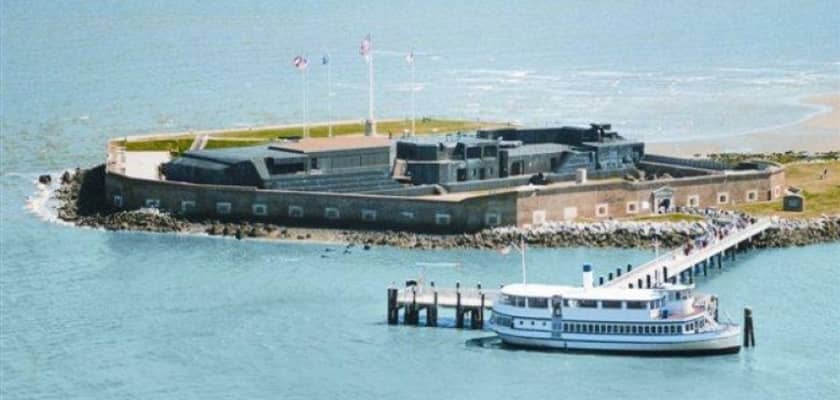
Situated on an island at the entrance to Charleston Harbor, Fort Sumter is where the American Civil War started on April 12, 1861. The fort is accessible only by boat.
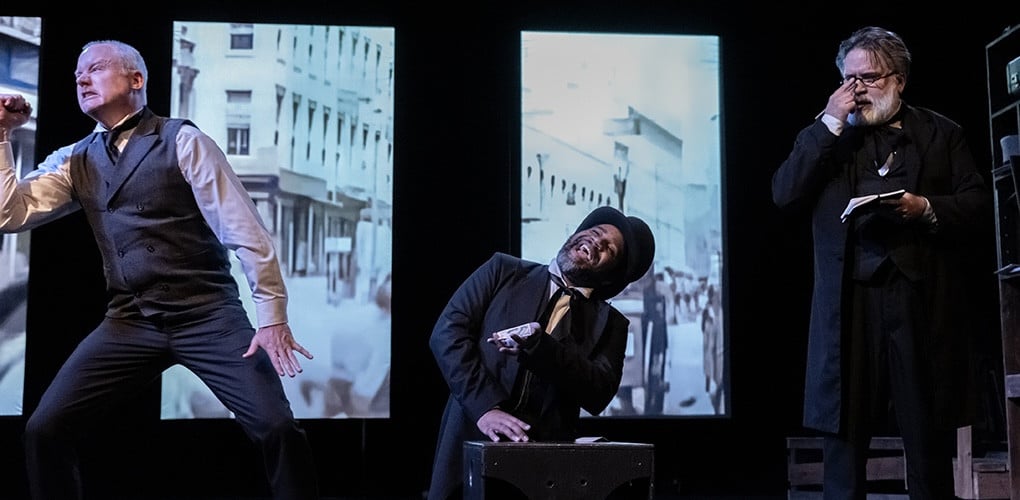
Where theatre gets real in Charleston
Reading room, archives & scheduled tours. 1990 Carolopolis Award. Beautifully restored facility, site of former Avery School built in 1865. Includes art, historical exhibits.
A plantation relic once owned by a Founding Father is a National Park Service site with grounds, historic house, exhibits, film, museum shop, and programs. Free. Open Wed-Sun
Open M-Su. Built in 1841 to sell produce and meats, it features small shops, restaurants and flea market with everything from produce to antiques.
Settled in 1696 on a high bluff of the Ashley River. Visit the ruins of Fort Dorchester, old St. George’s Church, and interesting archaeological excavations & more!
The National Park Service explains and preserves the evolution of seacoast defense from one of the first decisive victories in the American Revolution through World War II.
This National Park Service site is the primary departure point for visitors to Fort Sumter. Exhibits provide an overview of events leading up to the Civil War. Free admission.
As the official philanthropic partner, the Friends group works to provide support for the National Parks in Charleston through education, advocacy, and preservation.
Visit one of the oldest, preserved plantations in South Carolina. Located between Charleston and Myrtle Beach. Tours daily.
Charleston's Revolutionary War house was the townhome of Thomas Heyward, Jr., signer of the Declaration of Independence, and now features remarkable Charleston-made furniture.
Built in 1803, the Joseph Manigault House is an exceptional example of Federal period architecture with a remarkable collection of early 19th century furnishings.
Oldest cemetery in Charleston, founded in 1849 on the banks of the Cooper River, inhabited by generations of southern leaders. On the National Register of Historic Places.
Located off of Folly Beach and an ecologically and historically sensitive barrier island. Recognized as a top 100 cultural site in SC by the Heritage Trust Program Board.
Built in 1771, American Patriots were held prisoner here during the War of Americas' Independence. One of the 3 most historically significant buildings of colonial America.
Established in 1991 by the Vestry of St. John’s Reformed Episcopal Church to develop and maintain a commemorative garden and preserve the legacy of the master craftsman.
Paved the way for the founding of the College of Charleston in 1770. Providing core collection of artifacts for the founding of the Charleston Museum.
Founded in 1770, the first municipal college in America was built in 1724. Present main building designed by eminent Philadelphia architect William Strickland, built 1828.
“America’s First Theatre,” home to Spoleto Festival USA, Moja Arts Festival and Charleston Stage, the theatre company in residence presenting a full season of plays each year.
Oldest public building in the Carolinas. Replaced by a newer magazine in 1748, it served effectively until the American Revolution. Now open as a National Historic Landmark.
Access Your Favorites from any Device and Get Suggestions for Upcoming Events
Published annually, the official Charleston Visitors Guide is full of gorgeous photography, insider tips, maps, and resources to help you plan your Charleston vacation.
No, thanks. Yes, please!